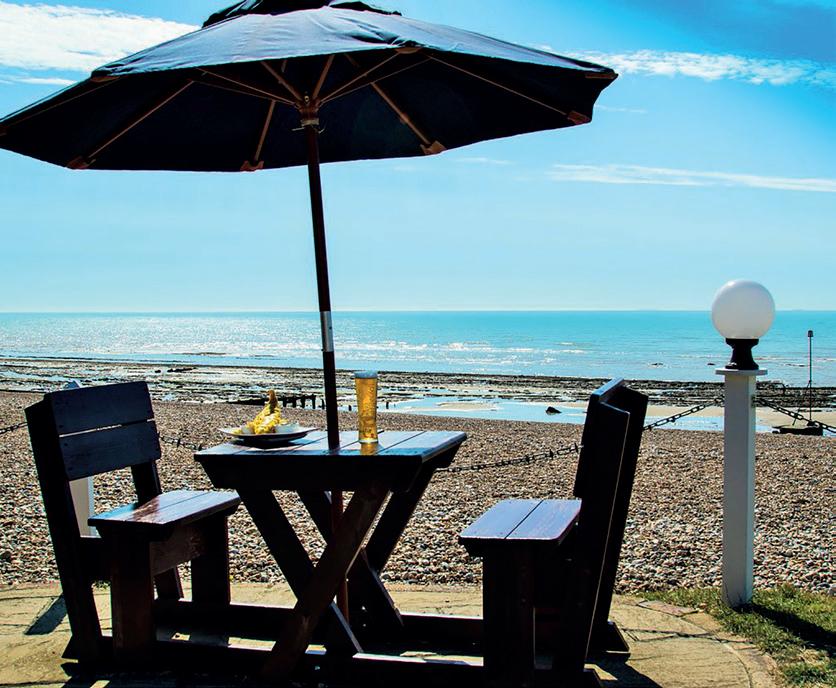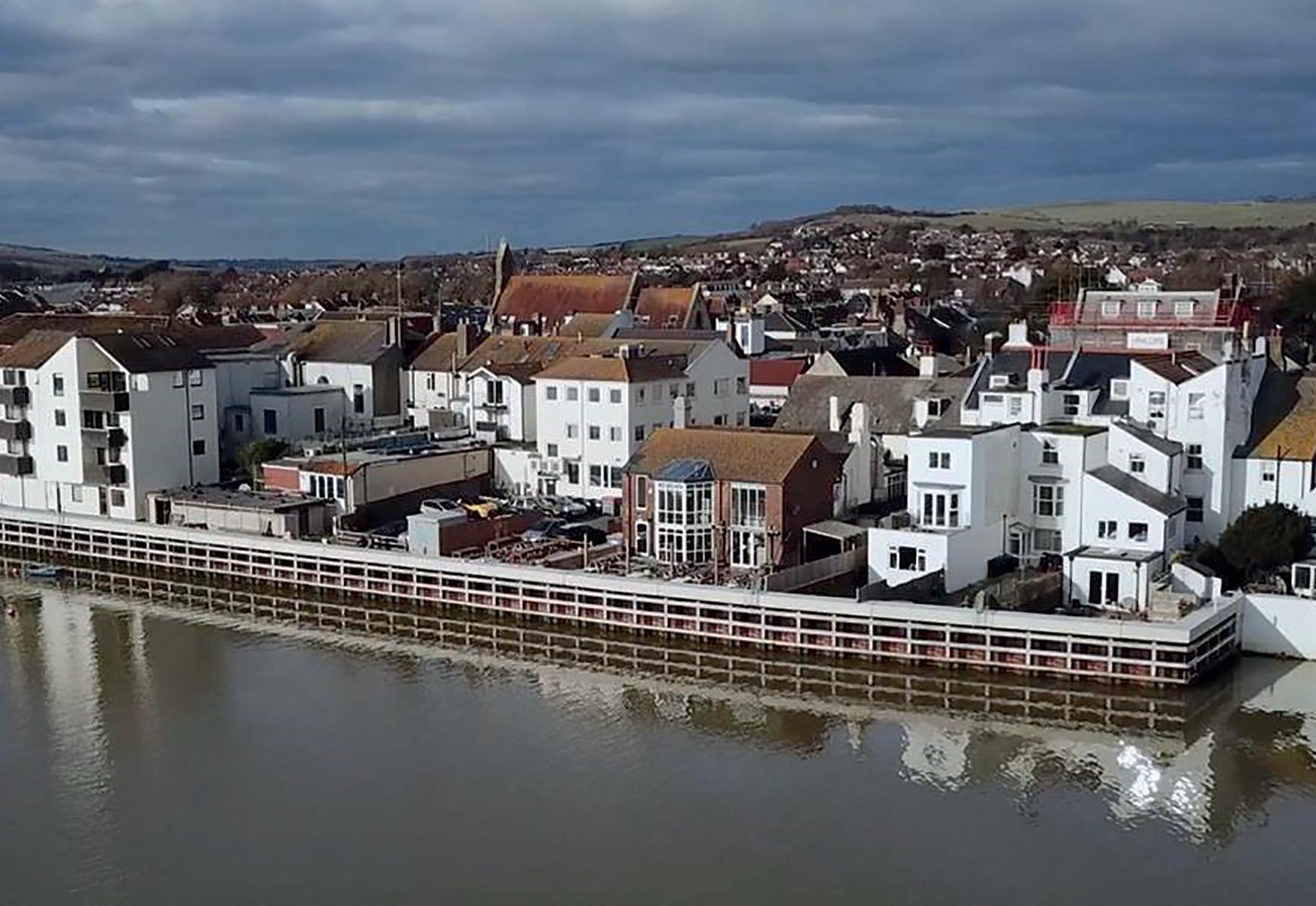
9 minute read
global focus
Brexit – running to schedule. All aboard!
Paul Samrah is Partner and Brexit Impact Specialist at Moore Kingston Smith.
Advertisement
Paul Samrah
Partner Moore Kingston Smith
Crucial trade talks with the EU27 under way once more, and the Brexit Express is hurtling down the track to its final stop on Thursday 31 December 2020. No extension to this date now – we are looking at the end of the line. The destination by the end of the year will be a simple binary choice: deal or no deal.
Currently, trade between the UK and EU is tariff-free. In the absence of a trade deal, that will all change come 1 January 2021 when the UK will move to WTO rules. Different rates of customs duty on imports into the UK from the EU27 will apply.
The bloc’s average WTO tariffs are 11.1% for agricultural goods, 15.7% for animal products and 35.4% for dairy. British car makers will face a 10% tariff on exports (possibly amounting to €5.7 billion a year), causing the average car price to rise by €3,000. WTO “most favoured nation” rules mean that the UK cannot lower its tariffs for any specific country or bloc, ie the EU, without agreeing a trade deal.
Importers should negotiate with suppliers sooner rather than later, as tariffs will be based on the full market value of the goods and services. They will be responsible for using the correct commodity codes, so the correct procedures and controls must be in place to avoid errors and delays at ports. Additionally, they should have a contingency plan that allows time to make the necessary adjustments, train staff and prepare for cash flow interruption.
Checks on goods entering the UK will be phased in in three stages up to the summer of 2021, regardless of whether a deal is done or not.
From 1 January, there will be checks on controlled substances, such as alcohol and tobacco. Standard goods, such as clothes and electronics, will be subject to basic customs procedures. Businesses will have up to six months to complete customs declarations and pay relevant tariffs.
From 1 April, those importing products of animal origin, including meat, milk or egg products, will have to pre-notify officials and provide the relevant health paperwork.
By 1 July, all goods will be liable for relevant tariffs and customs declarations as well as full safety and security declarations. From then, there will be an increase in physical checks on livestock, plants and sanitary products at ports and other entry points.
New border facilities will be built to process the required checks either at ports or, where there is not enough space, at "inland sites". Note that the proposals only apply to rules on imports, with checks on exports to the EU being determined by Brussels. Businesses with employees from the EU27, Switzerland, Norway, Iceland or Liechtenstein should check if they and their families need to apply to the settlement scheme.
UK companies with their ‘seat’ in the EU27 – seat being where management takes place and where its decisions are transformed into the day-to-day activities of the company – will lose their current right to freedom of establishment.
Instead, each EU27 member state will apply its own rules on recognising UKregistered companies. Limited companies could be treated as partnerships, meaning shareholders lose the benefit of limited liability and become personally liable for the company’s debts. Some might require a cross-border merger into a local limited liability company. Forward-thinking businesses are strategically evaluating their level of readiness for a no trade deal.
Be prepared!
Whatever a business’s restructuring needs, we can readily assist. We have developed an analysis tool – BX360 – that provides a detailed breakdown of actions to help businesses prioritise. It covers customs and tariffs, finance and taxation, legal aspects and contracts, and people implications.
Explore our Brexit hub for the latest guidance on what to do and how Moore Kingston Smith can help. https://mooreks. co.uk/brexit-hub/
Leslie Kimber, CoOwner, The Cooden Beach Hotel


Even a pandemic can’t change the view
The Cooden Beach Hotel boasts a unique location quite literally ‘directly on the beach’ with panoramic sea views stretching towards Beachy Head.
Proudly reopening its doors after 15 weeks of lockdown it has fresh internal decor and all the excitement of a new business.
Preparing to open in a Covid safe environment the internal systems and procedures have been given an overhaul to ensure that customer service is top of the menu. The family run hotel of fifteen years has firm standing welcoming new and returning guests to a truly hidden gem.
The Brasserie on the Beach has a spacious modern feel where breakfast is served from 7am through to brunch and an all-day menu with last orders at 9. On a sunny day, the bi-fold doors are opened all around giving that holiday vibe, serving delicious plates of locally caught Fish & Chips, Steaks on hot lava stones, Salads and the ever-popular Chicken Skewer with chef’s secret marinade. Bag a table on the Beach Terrace for perfect alfresco where your toes can touch the pebbles and your furry friends can come too.
Business First is a comprehensive service for corporate guests offering a range of facilities for training & conference events and business meetings. Flexible catering options are offered and a preferential room rate for delegates. The hotel is located a few minutes’ walk from Cooden Beach railway station with direct trains to London, Hastings and Brighton and there is also a free carpark.
As this strange unprecedented becomes the new normal it is time to capture a moment of calm with your favourite tipple from the gin palace or mocktail of the week whilst watching the waves as the world goes by.
Challenges Ahead
This edition on “global” is key as there are many changes in the next few months with the UK exiting the EU – tariffs, customs, points based immigration system, changes in import and export. This will be a further shock to the economy.
For the edition thereafter and looking ahead I can see the next topic is “sustainable management” – the environment, skills of the future and the economy. I see this being key given the challenges businesses will face.
We are likely to see huge redundancies in the area (especially Crawley and Gatwick) over the next few months as furlough comes to an end and people are made redundant. Experts are predicting this to be one of the worst affected areas. However there will be opportunities in other sectors such as manufacturing and construction with government investing in infrastructure, schools and the high street. So there will be a need to reskill people.
Young people will be the most affected. Apprenticeships have declined (we have seen an 85% reduction nationally) as businesses will wish to concentrate on building their business again. Furthermore, there will be a push to the carbon net zero agenda which means businesses may work more locally, introduce more co-working spaces and have less travel to London etc.
Rob Clare
Chairman Sussex Chamber of Commerce
£31m Shoreham flood protection scheme goes from strength-to-strength with another industry accolade A multi-award-winning scheme, delivered by West Sussex-based construction and civil engineering firm Mackley, has received further industry recognition for its ‘positive and transformational contribution to society’.
David Knapp
Business Development & Marketing Manager Mackley Construction
The £31 million Shoreham Adur Tidal Walls Scheme has significantly reduced the flood risk for nearly 2,500 residential and commercial properties in Shoreham-by-Sea and East Lancing.
Since its completion in February 2019, the scheme has received widespread industry recognition.
Most notably, the scheme was crowned Climate Resilience Project of the Year at the British Construction Industry Awards in October 2019.
The BCI Awards recognise and reward excellence in project delivery. With a panel of exceptional judges, site visits to all shortlisted projects and rigorous interviews for all shortlisted companies, the awards are the ultimate vindication of project success.
The Climate Resilience category recognises excellence from concept, through procurement, design and construction and on to operations and ultimate end user satisfaction.
Specifically, it rewards projects that are mitigating the impact of extreme weather and climate change on people, properties and business.
And the Shoreham scheme is continuing to pick up accolades.
At the RICS Social Impact Awards, South East, on 11 June 2020, it was named winner in the Infrastructure category - rewarding its ‘positive and transformational contribution to society’.
Designed to last for 100 years
Prior to works getting underway in 2016, Shoreham had been identified as ‘vulnerable’ - with the previous flood defences along the River Adur reaching the end of their useful life.
In response, a scheme to strengthen and improve flood defences on both sides of the river was implemented, led by the Environment Agency in conjunction with Adur District Council, West Sussex County Council and the Coast to Capital Local Enterprise Partnership.
The Environment Agency employed the services of Team Van Oord to carry out construction, with Mackley as the lead contractor.
The project covered the west bank of the river all the way from Shoreham Fort to the airport, and the east bank from Coronation Green to the A27.
Different parts of the river required different types of defences, with varying work timetables and installation techniques. Defences constructed as part of the scheme include embankments, rock revetments, flood glass, and property level protection - all of which combined will reduce the likelihood of flooding in any given year.
The scheme’s design was sensitive to the particular unique heritage and environment of Shoreham. An archaeological investigation was undertaken in areas of interest and extensive ecological survey work was carried out to protect existing habitats and vulnerable species.
Working with the local community
As a company, Mackley is committed to working in partnership with the people who live and work in the areas where it operates.
Community outreach was a big part of managing the Shoreham project, and several community walks and public exhibition events were organised
Mackley also supported a wide range of local charities and community initiatives.

Over the two-year construction period, close to 400 school children from eight local schools visited the project.
The Shoreham Adur Tidal Walls was officially opened in March 2019, with praise from scheme partners.
Sir James Bevan, Chief Executive of the Environment Agency said:
“This new scheme represents a remarkable feat of engineering which will see Shoreham better protected from flooding over the course of the next century.”
“The Environment Agency has worked closely with partners and the local community to build and upgrade seven kilometres of new and existing flood walls, embankments and other defences, bringing greater peace of mind to thousands of homeowners and well over one hundred businesses in the local area.”
Cllr Neil Parkin, Leader of Adur District Council, said:
“The Adur Tidal Walls scheme will have an immeasurable impact on the residents and businesses in Shoreham and Lancing.
“It will not only protect our communities from future flooding but it also gives investors certainty, supporting the creation of new homes and workplaces while opening up the riverside to local residents.
“I want to thank the Environment Agency and their contractors for the work over the past couple of years.”






